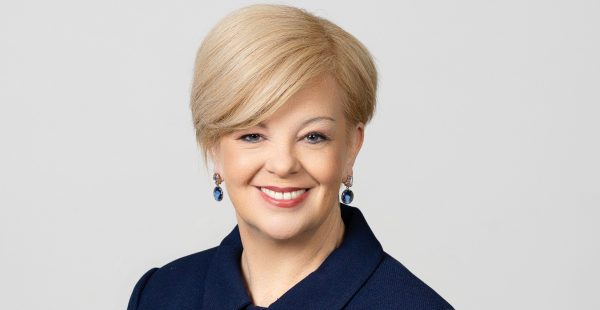10 court actions, 18 defendants – ASIC hits eco-system

The Australian Securities and Investments Commission (ASIC) has removed any doubt that the succession of legal actions launched in the Federal Court yesterday are part of a broad strategy to punish those in the investment eco-system it believes are guilty with respect to the Shield and First Guardian fund collapses.
Just hours after ASIC announced launching the actions against financial planning group Interprac, research and ratings house, SQM Ratings, MWL Financial Services and lead generator, Imperial Capital Group, ASIC deputy chair, Sarah Court noted that the regulator has “10 separate Federal Court proceedings against 18 defendants, and we have more to come”.
“We will not rest until our work on these matters is complete and those responsible have been properly held to account. One of our enforcement priorities for next year is therefore continuing our work to hold those responsible to account for the collapse of the Shield and First Guardian Master Funds,” Court said.
Of the range of legal actions announced by ASIC yesterday, that against Sequoia-owned financial advice group, Interprac, has the most implications because it Sequoia is a publicly-listed entity and its chief executive and managing director, Garry Crole, has been named in ASIC statement of claim.
Sequoia told the Australian Securities Exchange (ASX) that it would be defending the proceedings, with its formal statement saying the company “believes it has acted in accordance with its obligations under the Corporations Act”.
“The matters raised by ASIC relate to historic events and does not affect Interprac’s or Sequoia’s commitment to its ongoing operations, current authorised representatives, or ability to continue to provide financial services,” it said.
However, the company’s share price dived from 28.6 cents per share to just 25 cents per share.
In its statement of claim, ASIC said it is alleging that Interprac failed to:
ASIC alleges Interprac failed to:
- have in place an adequate process for approving financial products it allowed onto its approved product list, including Shield and First Guardian, and relied entirely on external research to add those funds to its approved investments list for advisers;
- respond appropriately to the use of lead generators (being Imperial Capital Group Australia Pty Ltd and AGAT Business Pty Ltd (in liquidation));
- respond adequately to news that payments had been made to Mr Ferras Merhi’s companies by entities associated with First Guardian and Shield;
- enforce or maintain a hold on new investments into Shield and First Guardian after Interprac’s Managing Director and Responsible Manager, Garry Crole, acknowledged serious issues with both funds;
- prevent the use of a ‘negative consent’ practice, which led to some clients’ superannuation being invested in Shield and/or First Guardian without express consent from those clients;
- respond adequately to significant inflows of investment into Shield and First Guardian;
- provide adequate responses to client complaints about advice from the Representatives to invest in Shield or First Guardian and instead relied on a ‘template’ response which often failed to consider the appropriateness of the advice; and
- respond adequately or impose meaningful consequences in response to serious compliance issues, including failings repeatedly identified in audits.
In the case of MWL Financial Services, ASIC is seeking court approval to proceed because the company is in administration, but ASIC is alleging the company operated a business model, involving its former director Nicholas Maikousis and lead generator Imperial Capital Group Australia Pty Ltd (Imperial), that provided inappropriate financial advice to clients to invest their superannuation into the Shield Master Fund (Shield), ASIC will seek to allege in the Federal Court.
ASIC has sought leave to commence the proceeding to allege serious failings in relation to Imperial’s referral of clients to MWL and the financial advice given by MWL advisers.
ASIC will seek to allege that:
- between May 2022 and February 2024, nine MWL representatives advised at least 556 clients to make initial investments of about $114 million of their superannuation into Shield;
- MWL failed to take reasonable steps to ensure its representatives acted in the best interests of its clients and provided appropriate advice in respect of recommendations that clients roll over their superannuation to invest into Shield as the pre-selected investment option;
- MWL failed to ensure its financial services were provided efficiently, honestly and fairly and failed to have in place adequate arrangements to manage conflicts of interest;
- Imperial, acting as a lead generator, made misleading representations to prospective clients about the standard, quality and benefits of MWL’s financial services and was involved in MWL’s alleged contravention of its obligation to provide financial services efficiently, honestly and fairly;
- MWL’s director, Nicholas Maikousis, was involved in MWL’s alleged contraventions of its general licensee obligations and its obligation to take reasonable steps to ensure its authorised representatives complied with their best interests and related duties;
- MWL received advice fees charged to clients for preparing Statements of Advice recommending investment in Shield;
- Imperial received (through a related entity) approximately $12.8 million in payments from entities associated with Shield for client referrals and the promotion of Shield.











The bit I don’t get in all of this is the hysteria about “lead generators”. Lead generation is just a marketing tool. There is nothing intrisically wrong with it. It only becomes a problem if it uses false and misleading information, or makes recommendations it is not licensed to do. But the same applies to other forms of marketing such as TV advertising and workplace seminars.
Union super funds have been using false and misleading information in TV ads for years. They have been conducting workplace seminars for years, in which unlicensed sales reps provide switching recommendations. Why has ASIC ignored this?
Union super and their bedfellows in ASIC have been quick to demonise lead generation as a marketing format, because it’s a format union super doesn’t use. But at the end of the day it’s the content of the marketing, not the format, that matters.
This is true. I had a case earlier this year where a workplace visit from a super trustee provided verbal switching recommendations to my client along with the rollover paperwork.
My client also said that the rep undermined my advice and challenged the value of services that I was providing them.
Not cool.
Its interesting though Anon – I went on and followed the bouncing ball from one of these lead generation channels via facebook and ended up at Ready Advice – Financial advice to help you manage, grow and protect your wealth. The machine moved me through two interviews with non licenced GA employees and an SOA that recommended me to move to a SMA through Hub 24. The last meeting was supposed to be with the adviser whose name was on the SOA – but that never meeting eventuated (he didn’t call at prescribed time) and I keep getting docusign requests to approve the recommendation and rollover funds – They certainly have a slick paraplanning outfit – advice was received within 3 days
I would 100% be naming that adviser to ASIC
Innocent Advisers will be forced to fund ASICs legal fights with even higher levies?
I am not saying those who AISC are chasing thorugh the courts do not deserve it, they do for thier role in the matter. But I am interested to see when ASIC will be taken to court for its failures in relation to this (I know this will never happen)! ASIC failed these investors and seems to have no compasion or guilt for its role. Just how do those in ASIC responsible for this sleep at night.
Image all the work ASIC could have avoided if they actually acted when advisers reported these activities to them. Lots of beating their chest but no comments on why it took them so long to do anything to avoid significant consumer harm.
I think ASIC also needs to be carefull vilifying research houses generally. SQM may well not have had sufficiently robust processes in place as a research house. Interprac may have failed in their duty by properly vetting the research house they chose, the court will let us all know. But to suggest licensees shouldn’t largely rely on indepth research from a non-aligned research house full stop is challenging. Short of severely limiting investment choice within a license and potentially further narrowing investment choice for clients across the board further creating concentration risk I’m not sure how licensees should go about it any differently. IT will add significant cost to advice if licensee all have to do their own in depth research and would be impossible for any but the largest licenses.
Vilifying the innocent majority is ASIC’s standard approach to everything.
Timely action against the rogue minority is what ASIC should be doing, but chooses not to.
Is there a reason the audit company of the collapsed products, the ones who are meant to verify assets and the propriety of operations, is not on the list of those being charged?
This is not my first Dance in picking up pieces for devasted Australians, and I can tell you it won’t be the last. Far easier to blame indivdual Financial Advisers and to let investors face there losses, and you all end up in Comrade Super and the Age Pension rather than corrupt ASIC actually doing work or looking at systematic issues my friend. I would suggest corrupt ASIC are just too busy chasing it’s own red tape to be doing any meaningful work.
“Comrade Super”
Nice.